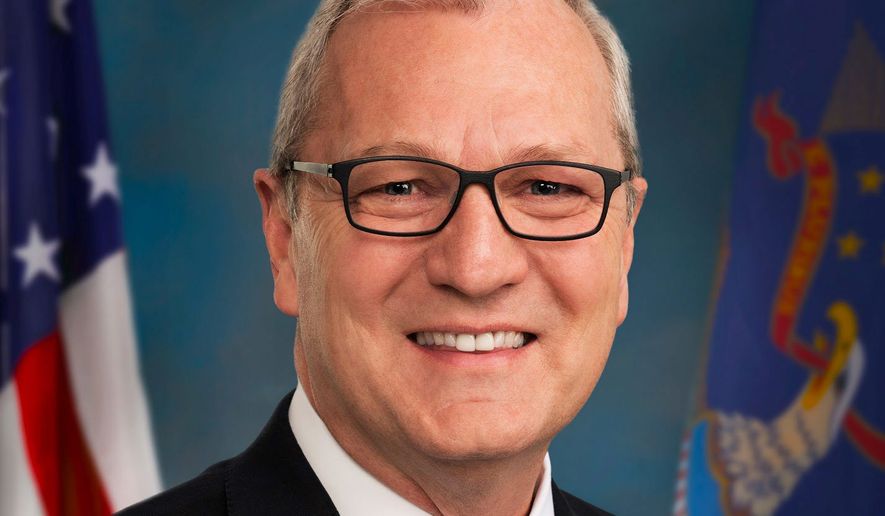OPINION:
In July 2019, the Senate Environment and Public Works (EPW) Committee did something rare. We put aside the partisan theatrics consuming the 116th Congress, crafted a bipartisan highway bill, and unanimously passed it through committee. While this bill, entitled America’s Transportation Infrastructure Act (ATIA), did not become law, it still offers the 117th Congress a blueprint for how to stimulate the economy through long-term investment and deliver a significant, unifying win for the American people. I am optimistic we can get the job done, but we need to do it right.
In what would have been the largest highway bill in history, ATIA authorized $287 billion in highway spending over five years, $259 billion of which would be distributed to states using a formula that ensures states with smaller populations but expansive road systems like my state of North Dakota receive sufficient funding. Maintaining this formula was a major request of my constituents and it should be included in any highway bill we consider during this Congress. ATIA also provided $5 billion in much-needed funding for tribes and federal lands. Usable transportation infrastructure is key to bringing economic opportunity to our tribes, and maintaining access to federal lands ensures they remain usable to all.
ATIA took steps to eliminate burdensome regulations which prevent authorized projects from becoming shovel-ready jobs, establishing a two-year completion goal for environmental reviews and creating an accountability and tracking system. If the Biden Administration wants significant infrastructure investment, no amount of money will be sufficient without regulatory improvements.
To make this or any significant transportation infrastructure bill possible, we must first make our highway system fiscally sustainable. The Highway Trust Fund faces massive shortages due to an outdated user fee system. While the gas tax has remained static, regulatory burdens have increased project costs, and electric vehicles (EV) don’t pay into the highway system they use. In fact, through the EV tax credit, the federal government is paying Americans to buy these cars then giving them a toll-free pass funded by those who still pay the gas tax. It needs to be modernized, but any increased funding should not be achieved solely on the backs of middle-class Americans.
America’s Transportation Infrastructure Act offered significant investment to address our immediate and long-term needs, powered by America’s workers, enabled by regulation reform without harming the constituents we want to help. It is a guide for overcoming economic downturn and a stark contrast to the partisan $2 trillion spending package pushed by Democrats.
High-paying jobs would be better for the American people than stimulus checks or additional unemployment payments. A reduction of harmful federal mandates would be more helpful for economic recovery than mandating a drastic, unilateral minimum wage hike. Building a robust transportation infrastructure that moves our products and people will lift every sector of the economy and position us to better compete globally. If the Administration wants to spend trillions on short-term spending measures, let’s invest billions on infrastructure to create immediate economic opportunity and usable transportation systems which will benefit this generation and the next ones.
For proof, look no further than North Dakota. As my state proved years ago, an economic downturn is an excellent time to take action. Because of our economy’s heavy reliance on energy and agriculture exports, we are accustomed to market booms and busts. During one bust, North Dakota seized the moment and invested in infrastructure so we would be better prepared for the next boom. It worked, and we are still reaping the benefits of that foresight today.
It is past time Congress stopped viewing infrastructure as a talking point and started treating it as the national priority it is. Republicans and Democrats must commit to putting progress and comity ahead of personal priorities and partisan grandstanding.
With Democrats now in full control, they might be tempted to throw out the progress we have made and attempt to push through a partisan bill filled liberal wish-list items and short-term spending rather than long-term investments, just as they did with President Biden’s trillion-dollar spending package. They should resist the urge.
I have appreciated the bipartisanship EPW Chairman Tom Carper and Ranking Member Shelley Moore Capito have pursued thus far, and I hope we can maintain momentum by delivering a significant, unifying win for the American people.
• U.S. Senator Kevin Cramer, North Dakota Republican, serves on the Senate Armed Services, Environment and Public Works, Veterans Affairs, Banking, Housing and Urban Affairs and Budget Committees. His prior service includes the North Dakota Public Service Commissioner where he utilized his energy expertise and ensured some of the lowest utility rates that helped North Dakota establish its competitive position in the global marketplace.




Please read our comment policy before commenting.